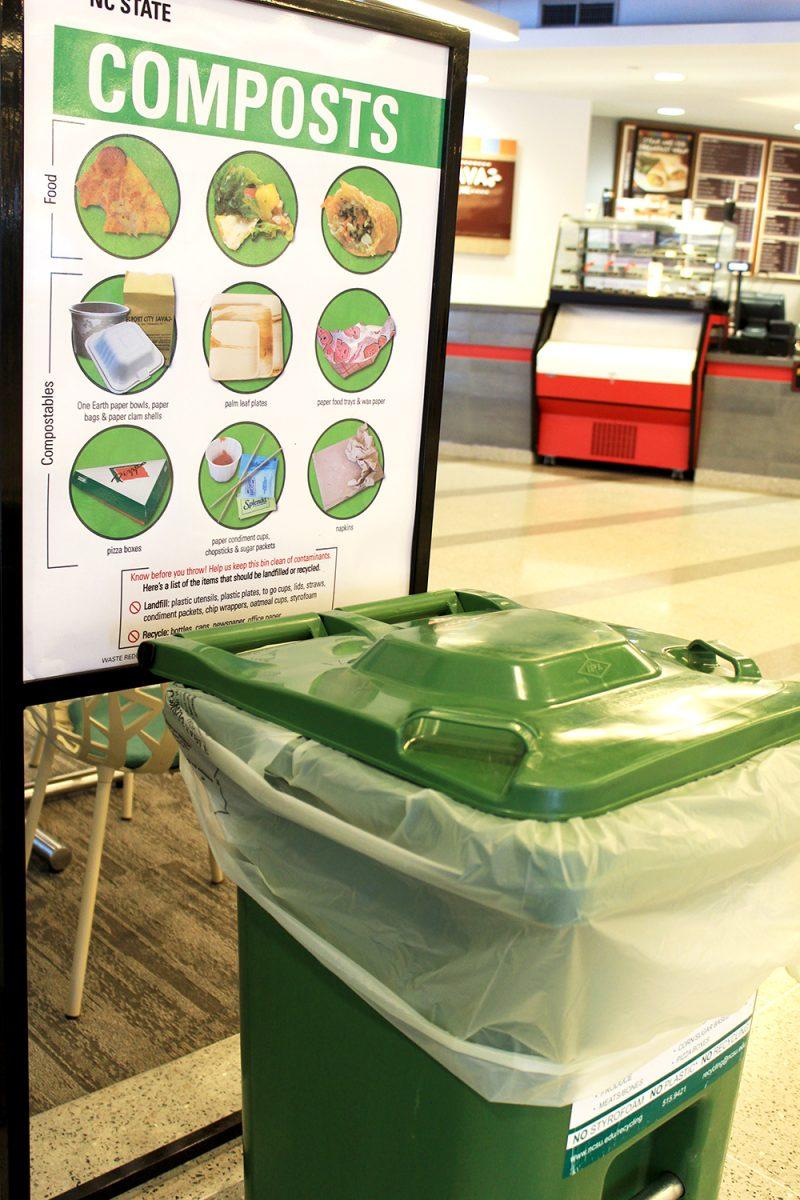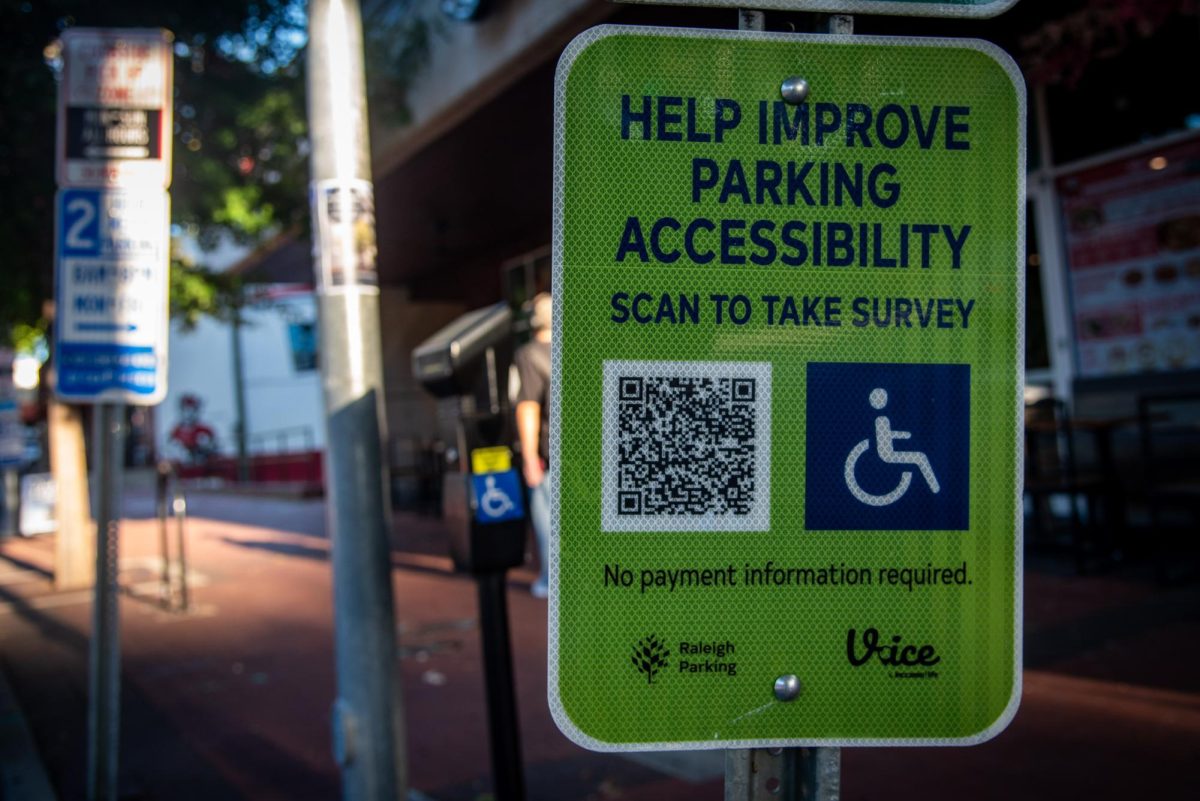In the interest of sustainability, NC State’s Pizza Box Composting Project aims to reduce waste in landfills and introduce students to composting and compostable items.
Lani St. Hill, outreach coordinator at Waste Reduction & Recycling, said 38% of landfill waste generated by NC State is compostable. Before the project, students did not have access to composting when living in student housing.
“It’s about creating access and also helping people learn what composting is, what it can be and the benefits it can do, not only for our university but also for our community and the planet,” St. Hill said.
St. Hill said that unlike when the program began in 2014, students are now able to compost more than just pizza boxes when living in university housing. Many resident halls, including Bragaw, Bowen and Metcalf, now have their own compost bins for food scraps, paper towels and plant materials.
New residents to the village also attend an educational session with St. Hill to learn about composting. EcoVillage Director Meghan Teten said these sessions help students get accustomed to composting and are especially useful for students who were not familiar with composting before coming to NC State.
Teten said a lot of information taught in St. Hill’s lessons revolve around which materials are meant to be recycled, composted or thrown into general garbage.
“[St. Hill] does a great activity to help students learn what they can and can’t recycle or compost on campus,” Teten said.
The Pizza Box Composting Project started with a student suggestion from a focus group. St. Hill said the goal of the project is to encourage students to continue to compost after they leave NC State.
“It really was that student idea, and I think it’s a great idea, and it’s something that [the focus group] was familiar with,” St. Hill said. “It was an easy and relatable concept versus organics. We have found when we say ‘you can compost organic materials,’ people become confused about what that word ‘organic’ means… So, ‘pizza boxes’ is just a universal thing.”
NC State buys compost product for the Agroecology Education Farm, which serves as an educational site for students and a food source for produce at NC State Dining. Compost also helps with the landscape upkeep on campus. However, NC State will soon have its own compost facility off Lake Wheeler Road, according to St. Hill. The facility will also offer courses in composting and sustainability.
“The pizza boxes become that gateway into that bigger realm of what is composting, what can be compost and what are the benefits of composting, and why we should continue to do it even if we move off of campus or are no longer part of NC State,” St. Hill said.
General information about composting pizza boxes can be found on the project web page in University Housing.






